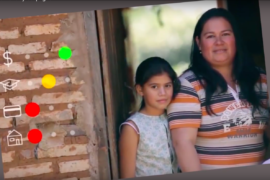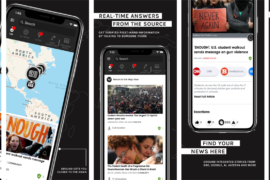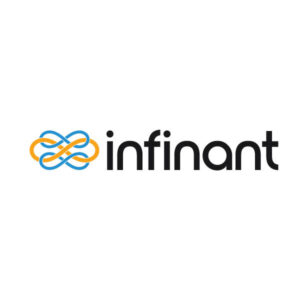Journalism is broken. The “infocalypse” is coming. We’ve now long heard the warnings – which may or may not be true – but, in either case, there is a company that is hoping to save journalism with a never-before-seen model.
As technology advances, we embrace it with open arms. Can you even imagine what life was like without the internet or a smartphone anymore? We laugh in the face of those who nostalgically reminisce of the ‘good old days’ where people rang landlines and spent hours waiting in the rain for that friend who couldn’t make it but had to way to get in contact. When the only way to contact people when you were on holiday was postcards.
Thank goodness we’ve moved on from those dark ages, but there is the growing preoccupation that we are going a little too far in the other direction, and it’s affecting journalism with insidious, wide-reaching consequences.
Buzzfeed News published an excellent article on technologist Aviv Ovadya, who tried to warn the world just before the 2016 US election that click-bait, ad-driven, tech-savvy journalism could have terrible consequences, and now believes that the information apocalypse has already arrived, we’ve just not noticed it yet.
Technology, he says, has advanced to the point that it has changed what we perceive as real. It can enhance, distort, and airbrush any number of things, but we’re often not aware that it is lurking behind a huge proportion of the news we see. Its ability is evolving faster than we can control it, or to grasp the implications it could have.
We’ve seen this already, as video- and image-altering technology can superimpose celebrity’s faces on porn stars, or use machine learning to copy voices and facial expressions to create videos of people saying something, even if they didn’t.
This incredible technology is providing an escape route for many. Donald Trump tried to deny his crude comments about women in the Hollywood tapes by placing doubt on whether it was his real voice.
“You don’t need to create the fake video for this tech to have a serious impact,” said Ovadya. “You just point to the fact that the tech exists and you can impugn the integrity of the stuff that’s real.”
So how on earth are consumers supposed to distinguish the fact from the fiction? We won’t, worried Ovadya. The situation is encouraging a ‘reality apathy,’ where people will avoid the news and media because there is no way to know if it is trustworthy or not.
“People stop paying attention to news and that fundamental level of informedness required for functional democracy becomes unstable,” explained Ovadya.
This is what’s on the mind of Civil co-founder Matt Coolidge, as he writes on the company blog. Rather than just projecting doom and gloom on the terrible journalistic future that lies ahead of us, however, he’s got a plan.
“Instead of throwing up our collective hands and bowing down to our robot overlords and their superior means of disseminating misinformation to support faulty ideals, let’s start a broader conversation about how to verify fact-based information,” he wrote.
The problem may stem from technology, he notes, but it is, in fact, a community issue. If as a community we refuse to be misinformed or to let ourselves be taken in by disreputable media sources, there is a future ahead. Remind friends that Facebook news feed is not really news, get them to check their sources.
Be skeptical, not defeatist.
Or, do what Civil have done and create a whole new decentralised platform that blends quality journalism with an inspired community that supports them.
Civil is an online media platform that requires potential journalists and newsrooms to sign the ‘Civil Constitution,’ stating what is ethical journalism, to prove that they vow to uphold it. They also have to stake a deposit on the platform to prove the seriousness of their intent, which will we around $1000.
“[This amount is] high enough to filter out most spammers, trolls or less serious applicants, but not so high that it’ll be a prohibitive barrier to entry for all but the wealthiest individuals or existing publishers,” Coolidge told StartupBeat in an email.
The platform is using blockchain and crypto-economic technology to create a community-funded and community-driven environment. Those who want to commit to funding quality journalism can buy CVL tokens (the value of which hasn’t been released yet), in order to hold a stake in the company and be able to vote on newsrooms and help maintain the quality. However, just to read the content uploaded on the platform, there is no need to hold CVL tokens or have any knowledge of blockchain.
“Our goal is to make quality journalism as accessible as possible, to as many people as possible, in as many different ways as possible,” Coolidge told us. “We think there will absolutely be a critical mass of readers that will agree that it’s worth supporting newsrooms if we effectively set a quality filter and, as a result, quickly earn reader trust.”
Civil is not a publication, it is merely a way for newsrooms to publish quality content, and gives them full autonomy. They can choose who they hire and what they write, as long as it follows the ethical journalism code set out in the constitution. As a community above all, they hope to collaborate with their readers, who can pitch stories and ideas for journalists to cover, something that startup Hearken is also doing.
If at any point the community believes that the newsroom is promoting or broadcasting disreputable or ‘fake’ news, they can challenge them, calling a community vote and demonstrating how the group is in violation of the Civil Constitution. If the challenge gets a majority vote, that newsroom or journalist will have to leave the Civil community.
This is to make sure that the content produced on the platform is high-quality journalism which promotes stories that are, for lack of a better word, true.
“We want to promote a model where you can quickly and confidently verify that an article was published by a specific individual, at a specific time,” Coolidge’s blog reads. “We want others to follow suit.”
Civil recently received $5 million from Ethereum venture studio Consensys, and have used a $1 million grant to create a host of newsrooms that are ready to go as soon as the platform comes online at the end of spring this year. These include Documented, which will give coverage on the daily lives of immigrant workers in New York, and Hmm Daily, ‘a place to say the things nobody else might say.’
Although Ovadya may be demoralised by the system, there are people out there who are taking a stand and trying to change journalism for the better. Ground is using AI-technology in order to verify new stories and allowing eye-witnesses in the area to upload breaking news content.
It might not be a perfect fix, and the issues raised in this article still exist and will continue to do so, but at least there are people out there who are stepping up and creating an alternative to the untrustworthy media sources that abound on the internet.
“We’re not going to sit here and say that Civil offers a silver bullet cure for all of this,” admitted Coolidge. “But we feel passionate that we’re at least proposing a novel, potential solution which rewards quality over quantity.
“Journalism is a vital pillar of free-thinking in democratic societies,” he continued. “It’s terrifying to think of the potential consequences if the industry continues to erode and public trust continues to wane. Information needs to come from somewhere — and it should be from trusted journalists, who agree to ethical, fact-based reporting standards.”












